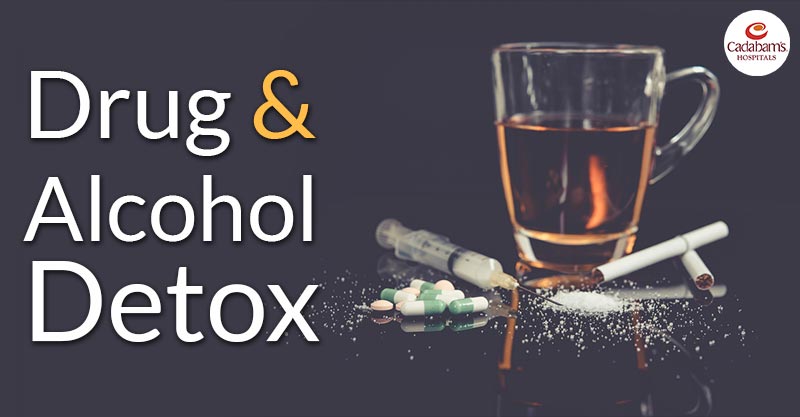What is Biofeedback Therapy?
Biofeedback involves using instruments placed on the body to monitor physiological activity like heart rate and muscle tension. Thus, biofeedback supplies real-time knowledge of these responses; it enables one to learn stress-reduction strategies and develop substantial self-regulation.
The Science Behind Biofeedback
Biofeedback for alcohol addiction is a holistic approach that addresses both the physical and psychological aspects of the condition. By monitoring physiological responses, therapists can help individuals identify triggers and develop strategies to manage cravings and reduce stress.
Biofeedback vs. Traditional Therapies
While traditional therapies like cognitive-behavioural therapy (CBT) focus on changing thoughts and behaviours associated with alcohol addiction, biofeedback offers a complementary approach. In addition to offering instant feedback, biofeedback can assist people in acquiring practical coping mechanisms.
Safety and Efficacy of Biofeedback
Biofeedback is a safe, non-invasive treatment that helps individuals battling with alcoholism by reducing their craving intensity, elevating their mood, and boosting the efficacy of the traditional therapeutic treatments.
At Cadabam’s Bangalore, our experienced therapists are committed to providing personalised biofeedback treatment tailored to your specific needs. By combining biofeedback with other evidence-based therapies, we can help you achieve long-term recovery from alcohol addiction.
How Biofeedback Transforms Alcohol Addiction Treatment in Bangalore
Biofeedback can provide individuals with real-time information about and control over their physiological responses when administered by qualified professionals. Through measurements such as skin conductance and heart rate variability, biofeedback helps individuals identify and address the stressors and triggers that contribute to their alcohol addiction.
By training individuals to self-regulate their physiological responses, biofeedback can support long-term recovery and enhance resilience to craving episodes. In order to guarantee a thorough approach catered to each the individual’s needs and requirements, biofeedback is frequently integrated with traditional and alternative therapy techniques.
The Process of Biofeedback Therapy: What to Expect
At Cadabam’s Bangalore, our biofeedback therapy respects each individual’s unique experiences and perspectives. The initial step in our biofeedback therapy involves measuring physiological markers such as skin conductance and heart rate variability.
Therapists then educate individuals about these responses and the connection between them and alcohol-related behaviours. Through guided sessions, individuals learn how to modulate these physiological responses using biofeedback techniques, including mindfulness exercises and relaxation techniques.
Therapists monitor progress and adjust techniques as needed to facilitate progressive recovery. The process promotes self-awareness, stress management skills and a proactive approach to improving overall well-being.
Benefits of Biofeedback for Alcohol Addiction Patients
Biofeedback utilises physiological response awareness to aid persons with alcoholic dependency in a transforming rehabilitation process. It is a personalised therapy in which, through continuous monitoring, patients learn to control cravings and reduce stress to improve their overall well-being.
Enhances Emotional Regulation and Stress Management
By educating people to monitor and regulate their physiological reactions, biofeedback training helps people manage their emotions and lower stress levels. This encourages long-term healing and overall health.
Improves Symptom Management
By training individuals to track physiological markers associated with cravings, biofeedback can help them better manage their urges. This empowers individuals to identify and address triggers, leading to improved symptom control.
Boosts Patient Engagement and Self-Awareness
Biofeedback’s real-time feedback encourages active engagement in therapy by providing immediate information about physiological responses. This helps individuals learn how their bodies respond to stressors and triggers.
How Biofeedback Complements Traditional Alcohol Addiction Treatments
Traditional treatments for alcoholism tend to concentrate on behavioural and psychological elements, while biofeedback adds an essential physiological factor that is usually disregarded. Through the measurement of physiological reactions like heart rate and muscular tension, biofeedback can improve the efficacy of traditional treatments.
This approach helps individuals manage stress and regulate emotions, providing additional tools to cope with cravings and triggers, thereby complementing and strengthening traditional treatment methods.
Navigating the Biofeedback Process for Alcohol Addiction in Bangalore
Qualified professionals ensure that persons going through each stage of the biofeedback process do it thoroughly and accurately. Recovery individuals should be well prepared and informed of the therapy process because they must get an idea of the fundamental base upon which the treatment procedure is based.
Steps involved in biofeedback therapy
A typical biofeedback therapy session begins with an initial assessment of physiological indicators such as heart rate variability and muscle tension. Patients are then educated about these responses and instructed in biofeedback techniques.
Throughout the session, patients practise these techniques and receive real-time feedback on their physiological states. Therapists monitor progress, adjust techniques as needed and provide ongoing support to maximise the effectiveness of the therapy.
Patient preparation and involvement
By learning about the goals and techniques of the therapy, individuals are better prepared for their biofeedback sessions. They develop the ability to identify physiological responses associated with cravings and stress. Individuals actively participate in sessions by learning relaxing techniques and focusing on the cues from their bodies.
Monitoring and interpreting biofeedback results
During sessions, therapists monitor biofeedback data in real-time, observing physiological responses such as skin conductance and heart rate. This data is interpreted to assess stress levels and identify triggers. These insights help therapists customise self-regulation and relaxation techniques.
Customising Biofeedback Therapy for Individual Needs in Bangalore
Factors such as the cultural situation and the individual response of an individual’s physiological condition are taken into consideration while customising biofeedback therapy. In this case, it can enhance the effect of treatment by addressing some triggers specific to each one’s experiences and environment.
A professional first assesses an individual’s physiological responses as well as personal triggers as part of comprehensive evaluations during the treatment of alcohol addiction using biofeedback.
These early assessments are helpful in pointing out individual stressors and identifying the most relevant biofeedback modes, for example, heart rate variability and skin conductance. This enables tailoring so that individuals improve their ability to self-regulate to enhance recovery.
Developing personalised biofeedback plans
After these preliminary measurements of physiological responses, relevant biofeedback modes like heart rate variability and electromyography are selected for reducing stress and craving.
These approaches are combined with conventional therapies to form a customised program for the individual. This strategy promotes self-awareness and coping skills, which facilitates long-term recovery.
Adjusting therapy based on patient response and progress
Biofeedback treatment of alcoholism is constantly adjusted according to an individual’s response through monitoring physiological data and assessing improvement in stress management and reduction of cravings.
Adjustments to the biofeedback techniques are done based on the need to optimise the outcomes, because certain triggers may not immediately be apparent or may at first seem exaggerated.
Integrating Biofeedback into Holistic Alcohol Addiction Care in Bangalore
Alcoholism is a complicated illness that calls for an all-encompassing strategy. Biofeedback can be a useful part of a complete treatment plan, even if no one therapy can address every facet of the problem.
Role of biofeedback in a broader treatment plan
Biofeedback can complement conventional therapies such as cognitive behavioural therapy and motivational interviewing by introducing a physiological dimension that teaches individuals how to self-regulate their stress responses.
This holistic approach gives individuals additional tools to better control their cravings and moods, improving overall well-being and reducing the risk of relapse.
Collaborating with mental health professionals
Mental health professionals play a critical role in addressing the underlying psychological factors that contribute to alcohol addiction, such as trauma or co-existing mental illness.
Their expertise ensures that biofeedback interventions are seamlessly integrated into comprehensive treatment plans to strengthen emotional resilience and improve coping skills. This collaborative strategy optimises therapeutic outcomes by addressing the physiological and psychological dimensions of recovery.
Ensuring a multidisciplinary approach to care
Alcohol dependence requires a multidisciplinary approach that takes into account both the psychological and physiological components of the disease. Biofeedback can be a useful adjunct to traditional therapies such as counselling and medication to improve self-regulation and stress management.
With the help of this integration, each person can receive individualised assistance and tools for long-term rehabilitation and well-being.
Cadabam’s Hospital: Pioneering Biofeedback Therapy for Alcohol Addiction in Bangalore
Cadabam’s has over 30 years of expertise treating mental illnesses and is a well-known for providing expert treatments for alcoholism such as biofeedback therapy in Bangalore. Our specialised team of psychologists, psychiatrists, therapists, and counsellors provides individualised biofeedback sessions to assist individuals with efficiently managing stresses associated with alcohol addiction.
We offer holistic therapy, combining biofeedback with other approaches to ensure comprehensive treatment and long-term rehabilitation without overwhelming each individual and encourage progress at their own pace.
Our Expertise in Biofeedback Therapy for Alcohol addiction
Our experts are experienced and understand the relationship between physiological responses and how they fuel alcohol addiction symptoms. Thanks to their experience, we can effectively incorporate biofeedback techniques into individualised treatment regimens, empowering patients to improve their well-being and manage cravings while they heal.
Assessment and Personalised Treatment Planning for Alcohol Addiction
Our mental health professionals conduct thorough assessments that evaluate the physical, psychological and social factors that influence the symptoms of alcohol dependence. Based on this, they create personalised treatment plans tailored to individual needs.
These plans include a mixture of different therapies, including counselling, medication and holistic practises such as yoga, relaxation techniques and creative therapies such as music or dance therapy. This holistic approach aims to promote effective recovery and well-being.
State-of-the-Art Facilities and Supportive Environment for Alcohol Addiction
Our facility has state-of-the-art equipment and comfortable areas specifically designed for biofeedback sessions. Our well-equipped therapy rooms promote calm and focus, which increases the effectiveness of biofeedback methods for stress reduction and addiction recovery.
Ongoing Support and Monitoring for Alcohol addiction
In addition to support groups and other community services, those undergoing biofeedback therapy for alcohol addiction at Cadabam’s can access educational materials on stress management and craving reduction. Additionally, our therapists offer personalised therapy to help individuals use biofeedback techniques effectively.
Comprehensive Care Approach at Cadabam’s for Alcohol Addiction
Alcohol addiction requires biofeedback treatment at Cadabam’s, but comprehensive assistance extends beyond therapy sessions. It covers other aspect such as stress management, craving control, tailored treatment plans, getting access to support groups, and symptom management techniques.
Family members can also receive guidance from our therapists on how to help their loved ones’ rehabilitation while preserving their own well-being.
Top Alcohol Addiction Doctors at Cadabam’s Hospitals
Alcoholism Psychiatrist in Bangalore | Alcoholism Psychiatrist in Hyderabad | Alcoholism Psychologist in Hyderabad | Alcoholism Psychologist in Bangalore | Alcoholism Therapist in Hyderabad | Alcoholism Therapist in Bangalore | Alcoholism Counsellor in Hyderabad | Alcoholism Counsellor in Bangalore
Rehabilitation Centres For Alcohol Addiction at Cadabam’s Hospital
Alcoholism Rehab in Hyderabad | Alcoholism Rehab in Bangalore
Best Alcohol Addiction Treatments Offered at Cadabams
Alcohol Addiction Online Counselling Bangalore | Alcohol Addiction Online Counselling Hyderabad | Alcohol Addiction Home Services | Alcohol Addiction PsychoTherapy Bangalore | Alcohol Addiction PsychoTherapy Hyderabad | Alcohol Addiction Group Therapy Hyderabad | Alcohol Addiction Group Therapy Bangalore | Alcohol Addiction Family Therapy Hyderabad | Alcohol Addiction Family Therapy Bangalore | Alcohol Addiction CBT Bangalore | Alcohol Addiction CBT hyderebad | Alcohol Addiction Neurofeedback Hyderabad | Alcohol Addiction Emergency Bangalore | Alcohol Addiction Emergency Hyderabad | Alcohol Addiction Neurofeedback Bangalore | Alcohol Addiction Biofeedback Therapy Hyderabad |
More Additional Resources About Alcohol Addiction
Counselling for Alcoholism | Facts About Alcohol Addiction
FAQ
How does biofeedback therapy help in Alcohol Addiction management?
Biofeedback therapy helps manage alcohol addiction by allowing individuals to control physiological responses related to stress and cravings. It increases self-awareness of how the body reacts to triggers, aiding in stress reduction and emotional regulation.
What can patients expect during a biofeedback session?
Following an assessment, individuals utilise sensors to track physiological data. The therapist gives them immediate feedback and teaches them how to manage these reactions. Goal-setting exercises and methods for implementing these tactics in everyday life conclude sessions.
How is biofeedback therapy integrated with other Alcohol Addiction treatments?
Biofeedback is integrated with treatments like CBT and MAT to provide a holistic approach. It complements these therapies by enhancing stress and craving management, contributing to a comprehensive plan for sustained sobriety.






























 Available
Available

















